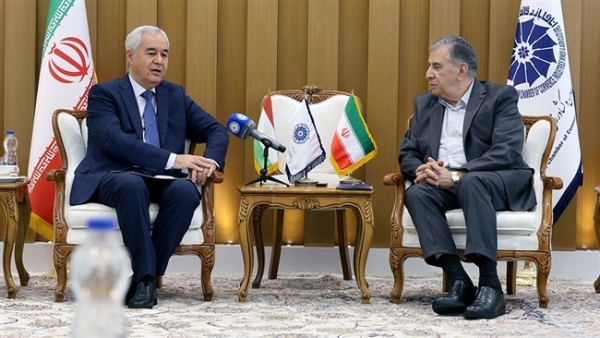Iran and Tajikistan have emphasized the need to expedite a preferential trade agreement and completely eliminate visa requirements to boost bilateral economic relations.
During a meeting in Tehran on Tuesday between President of Iran Chamber of Commerce, Industries, Mines, and Agriculture (ICCIMA) Samad Hassanzadeh and Tajik Ambassador to Tehran, Nizomiddin Zohidi, both sides highlighted untapped trade potential and the importance of closer collaboration between their business communities.
Hassanzadeh noted that the current trade volume falls far short of the two countries' capabilities. "Iran has significant potential in knowledge-based companies, engineering services, food industries, petrochemicals, construction materials, tourism, and information technology," he said, expressing Iran's readiness to meet Tajikistan's needs.
He also called for joint efforts to facilitate trade by organizing delegations and specialized exhibitions, adding that full implementation of visa-free travel could pave the way for deeper partnerships, including the establishment of joint industrial zones.
Zohidi echoed the sentiment, acknowledging progress in trade volume, which has reportedly increased tenfold since 2020. However, he urged efforts to boost bilateral trade to $1 billion, inviting Iranian business leaders to explore opportunities in Tajikistan.
Addressing visa challenges, the Tajik ambassador noted that the current exemption applies only to flights between Tehran and Dushanbe and does not include flights operating between Mashhad and Dushanbe. "We plan to launch a new route between Shiraz and Dushanbe, and fully removing visa requirements will enhance tourism and trade."
Also speaking during the meeting, Mohammad Hossein Roshanak, head of the Iran-Tajikistan Joint Chamber of Commerce, criticized high tariffs on Iranian goods in Tajikistan compared to Uzbek imports, calling for fair trade practices to reduce costs and enhance competitiveness.











